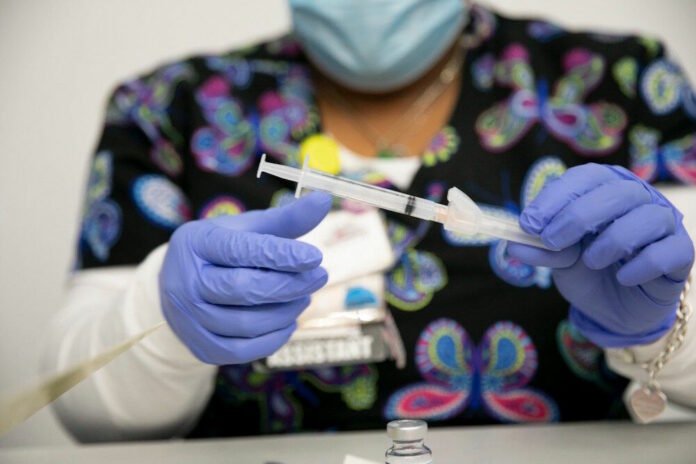About 7,550 out of more than 19.5 million Californians who were fully vaccinated against COVID-19 have contracted the disease, a minuscule percentage that provides strong evidence of the vaccines’ effectiveness, according to state data.
The breakthrough infections through June 23 amount to 0.039% of vaccinated Californians — or one case out of every 2,583 vaccinated people.
Most of the infections were minor, but 62 vaccinated Californians died from COVID-19, according to California Department of Public Health data.
“The way we should think about these cases is that they’re very rare,” said Dr. George Rutherford, a University of California, San Francisco epidemiologist.
The risks of the disease far outweigh the chance of a breakthrough case: More COVID-19 deaths have been reported in the past four days than the total number of vaccinated people who died from it over the past six months.
On Wednesday, state health officials reported 2,013 new infections among all Californians, including 24 deaths. They did not respond to a request for comment.
Nationally, out of 154 million fully vaccinated Americans, 4,115 people have been hospitalized or died after contracting COVID-19. That’s a rate of 0.0027%. More than three-quarters were 65 or older. Federal officials do not track total breakthrough infections because many involve minor or no symptoms.
In California, health officials matched data from the state’s immunization registry to a registry of confirmed COVID-19 cases to identify breakthrough cases.
There are some caveats to the data. While California’s public health agency reported 584 people were hospitalized after a breakthrough COVID-19 infection, hospitalization status wasn’t available for 46% of the post-vaccination cases. State officials also noted that some of them may have been hospitalized for an unrelated condition and tested positive for COVID-19 after being admitted to the hospital.
The three vaccines authorized in the United States – Pfizer-BioNTech, Moderna, and Johnson & Johnson – are considered highly effective in preventing severe disease and death. They also protect against the coronavirus variants now circulating, including the Delta variant, Rutherford said. Yet a small number of breakthrough infections are to be expected, the CDC says. The agency’s surveillance hasn’t turned up any unusual patterns.
Dr. Eugene Choi, a Los Angeles radiologist, contracted COVID-19 in early June, nearly six months after his first dose of the Pfizer vaccine. Choi detailed his experience on his Instagram account, where the CrossFit enthusiast has nearly 40,000 followers.
He told CalMatters that his symptoms included fever, night sweats, chills and muscle pains.
At first, “I did not think of COVID,” said Choi, who as a physician was vaccinated earlier than many Californians. “I thought … okay, it must be that other flus and colds are coming out of the woodwork.” But as his fever continued, he decided to get a COVID-19 test.
Then his wife, also vaccinated, and their two-year-old son became infected, he said. Their cases were more mild.
“I’ve seen firsthand the devastation COVID causes,” he said.
“My experience should give people reason to go get vaccinated,” he said, recalling how cases at the hospital where he works plunged as more Californians were immunized.
Choi wonders if the vaccine protected him from serious, lingering symptoms that many people have experienced. He said he was miserable for days, but never sick enough to need hospital care. He has since resumed his intense workouts.
“It certainly could have been worse,” he said. “I’m still amazed at what the virus can do.”
SoCoNews is partnering with CalMatters to provide a wider variety of news that gives our readers national and regional context for issues facing our local communities.








